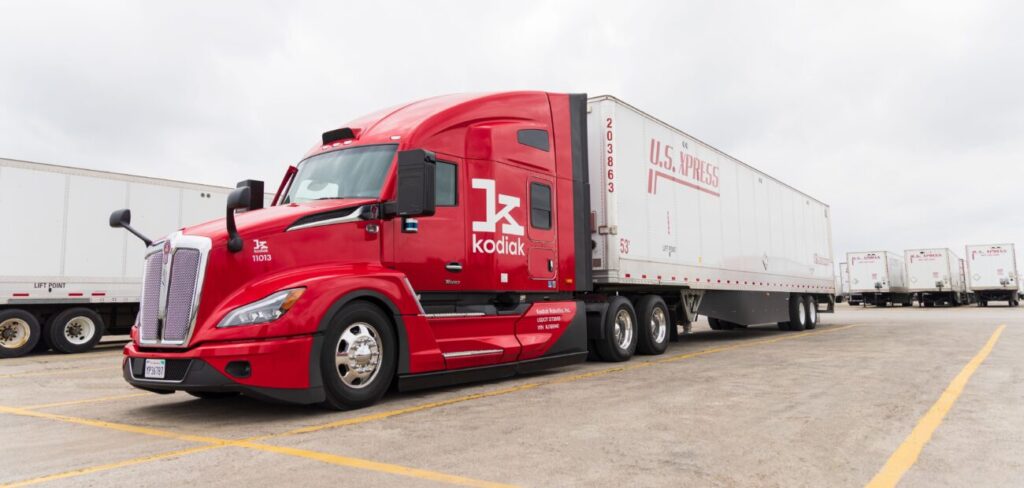Autonomous trucking developer Kodiak Robotics has publicly demonstrated its fallback system, which can autonomously pull a self-driving truck over to the side of the road in the event of a truck or system failure. The ability to perform a safe, reliable fallback, otherwise known as having the vehicle assume a minimal risk condition, is critical to safely deploying driverless trucks on public roads.
“To launch an autonomous vehicle without a human driver, you must ensure the vehicle will protect motorists in the case of a truck or autonomous system failure,” said Don Burnette, founder and CEO, Kodiak. “Implementing a fallback system is a fundamental necessity to achieving that level of safety. We are the first autonomous trucking company to demonstrate this capability on public roads. We have integrated fallback technology into the Kodiak Driver’s architecture from the beginning – it would be incredibly hard to add this capability as an afterthought.”
Ten times each second, the company’s self-driving system Kodiak Driver evaluates the performance of more than 1,000 safety-critical processes and components in both the self-driving stack and the underlying truck platform. These components include both truck-related components such as the engine, oil levels and tire pressure as well as autonomous vehicle system components such as sensors and software processes. Should any of these critical components fall outside the acceptable performance parameters, the Kodiak Driver automatically executes a fallback plan, safely pulling the truck over to the side of the road. For example, if flying roadway debris were to damage one of the autonomous truck’s sensors, the Kodiak Driver would detect the damage and safely pull the truck over.
“It’s essential that the self-driving technology powering an 80,000 lb semi-truck is capable of reacting swiftly and safely, no matter what happens,” added Burnette. “Kodiak’s autonomous trucks are constantly monitoring themselves and preparing to pull over in case of a fault, just like a human would. Kodiak’s ability to perform safe fallbacks depends on our own custom-designed safety computer, the Actuation Control Engine, or ACE. One of the many crucial functions the Kodiak ACE is responsible for is ensuring that our autonomous system can guide the truck to a safe stop when necessary.”
Kodiak’s fourth generation of trucks includes two ACE units for redundancy and additional safety. Should the ACEs lose connection with the Kodiak Driver’s main computer for any reason, from a communications failure to a loose cable, the system will automatically execute a fallback. The ACE is a universal interface to all truck platforms, and Kodiak is currently working to certify the safety computer to automotive-grade standards.


